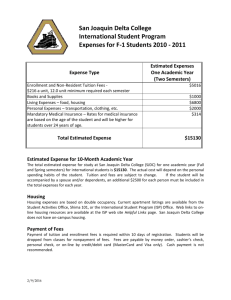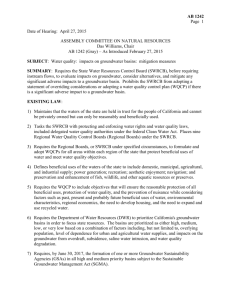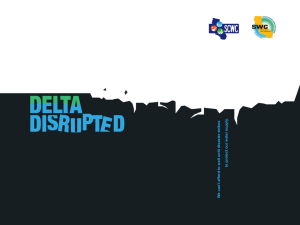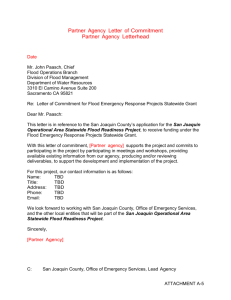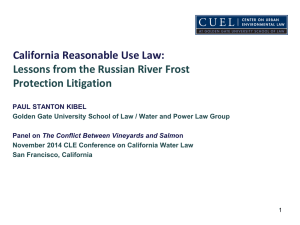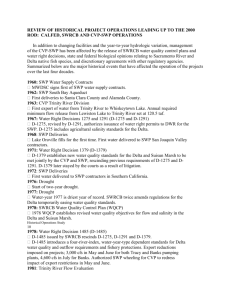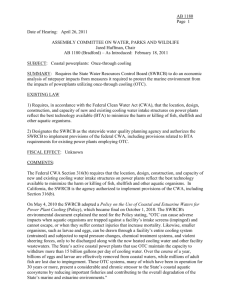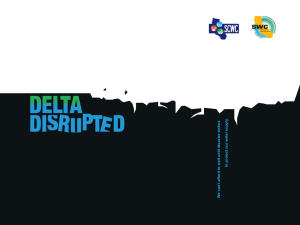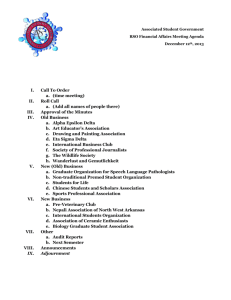appropriations
advertisement
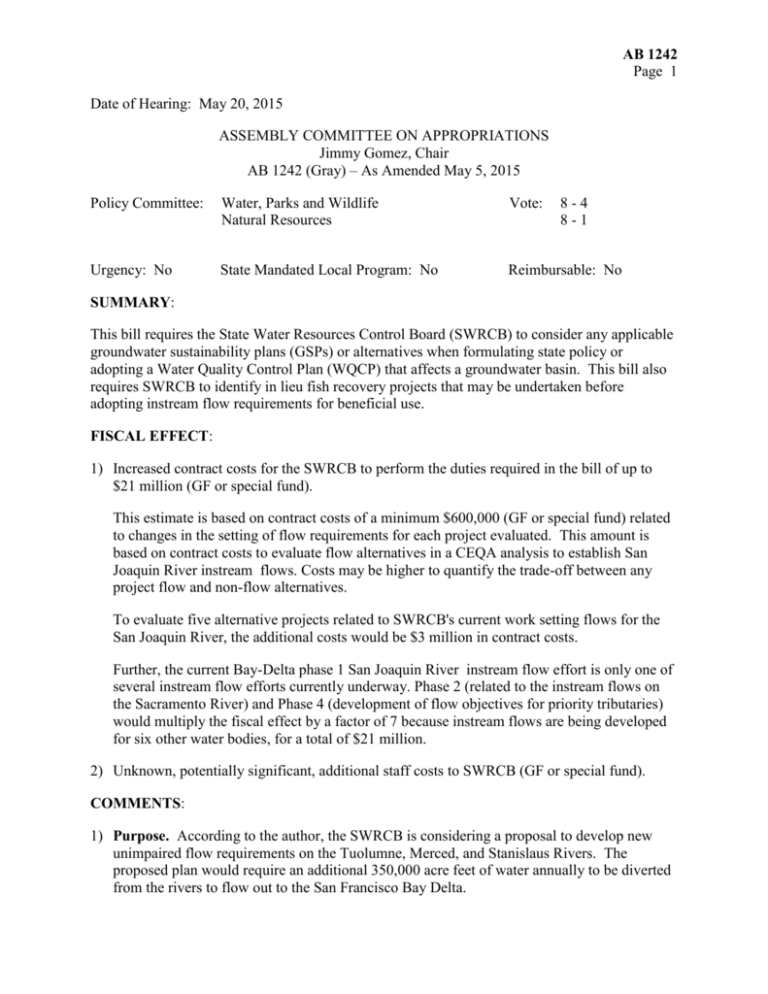
AB 1242 Page 1 Date of Hearing: May 20, 2015 ASSEMBLY COMMITTEE ON APPROPRIATIONS Jimmy Gomez, Chair AB 1242 (Gray) – As Amended May 5, 2015 Policy Committee: Water, Parks and Wildlife Natural Resources Vote: 8-4 8-1 Urgency: No State Mandated Local Program: No Reimbursable: No SUMMARY: This bill requires the State Water Resources Control Board (SWRCB) to consider any applicable groundwater sustainability plans (GSPs) or alternatives when formulating state policy or adopting a Water Quality Control Plan (WQCP) that affects a groundwater basin. This bill also requires SWRCB to identify in lieu fish recovery projects that may be undertaken before adopting instream flow requirements for beneficial use. FISCAL EFFECT: 1) Increased contract costs for the SWRCB to perform the duties required in the bill of up to $21 million (GF or special fund). This estimate is based on contract costs of a minimum $600,000 (GF or special fund) related to changes in the setting of flow requirements for each project evaluated. This amount is based on contract costs to evaluate flow alternatives in a CEQA analysis to establish San Joaquin River instream flows. Costs may be higher to quantify the trade-off between any project flow and non-flow alternatives. To evaluate five alternative projects related to SWRCB's current work setting flows for the San Joaquin River, the additional costs would be $3 million in contract costs. Further, the current Bay-Delta phase 1 San Joaquin River instream flow effort is only one of several instream flow efforts currently underway. Phase 2 (related to the instream flows on the Sacramento River) and Phase 4 (development of flow objectives for priority tributaries) would multiply the fiscal effect by a factor of 7 because instream flows are being developed for six other water bodies, for a total of $21 million. 2) Unknown, potentially significant, additional staff costs to SWRCB (GF or special fund). COMMENTS: 1) Purpose. According to the author, the SWRCB is considering a proposal to develop new unimpaired flow requirements on the Tuolumne, Merced, and Stanislaus Rivers. The proposed plan would require an additional 350,000 acre feet of water annually to be diverted from the rivers to flow out to the San Francisco Bay Delta. AB 1242 Page 2 The author states, if adopted, the SWRCB proposal will devastate the groundwater basins in the Valley by reducing surface water recharge opportunities and eliminating surface water deliveries to domestic and agricultural water users. This bill requires SWRCB to identify in lieu fish recovery projects that may be undertaken before adopting instream flow requirements for beneficial use. This bill also requires SWRCB to consider applicable groundwater sustainability plans (GSPs) or alternatives when formulating state policy or adopting a Water Quality Control Plan (WQCP) that affects a groundwater basin 2) Background. The SWRCB and federal Central Valley Project and others are required to help meet flow requirements in the Sacramento-San Joaquin Delta (Delta). Until recently, the tributaries to the San Joaquin River have not had the same requirements. The Merced, Tuolumne and Stanislaus Rivers are tributaries to the San Joaquin River. The SWRCB is now engaged in a process to determine what level of flows should be required on the tributaries. The San Joaquin River flows northward to join the Sacramento River in the Delta. The Delta's flow provides part of the drinking water supply for two-thirds of the state's population and water for a multitude of other urban uses as well as supplying some of the state's most productive agricultural areas both inside and outside of the Delta. The Delta is also one of the largest ecosystems for fish and wildlife habitat production in the United States, including commercial runs of salmon. Analysis Prepared by: Jennifer Galehouse / APPR. / (916) 319-2081

